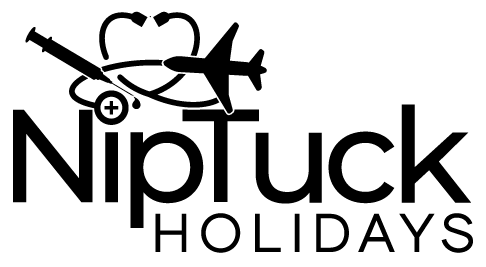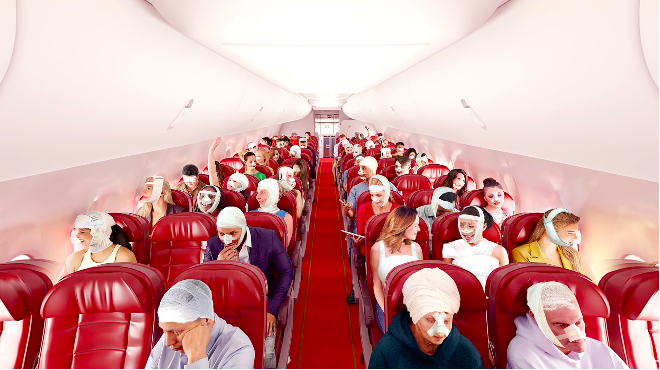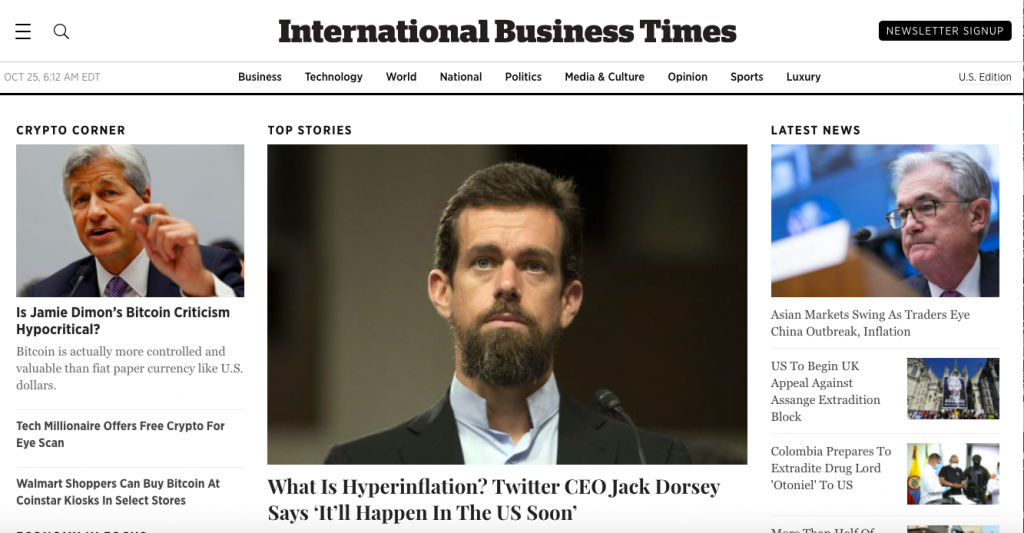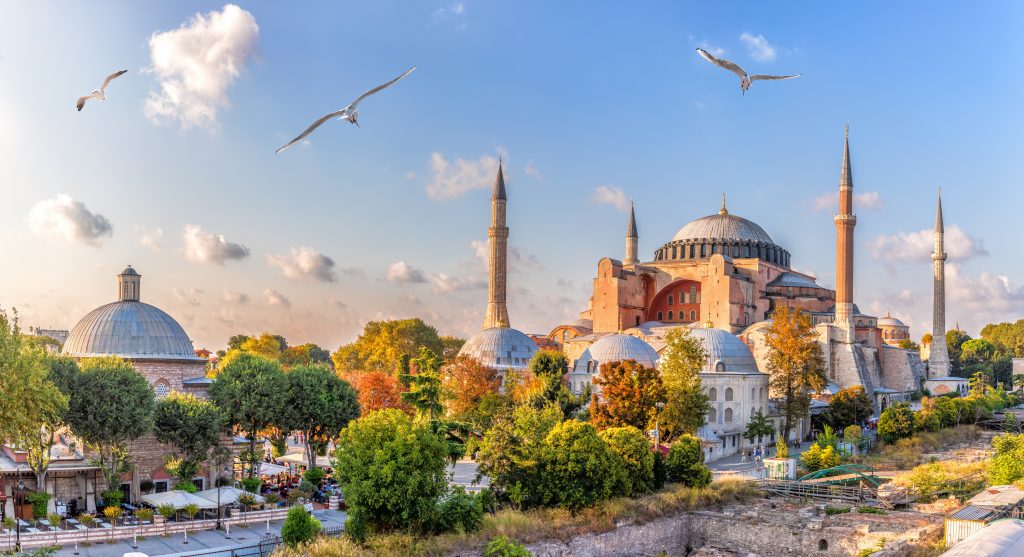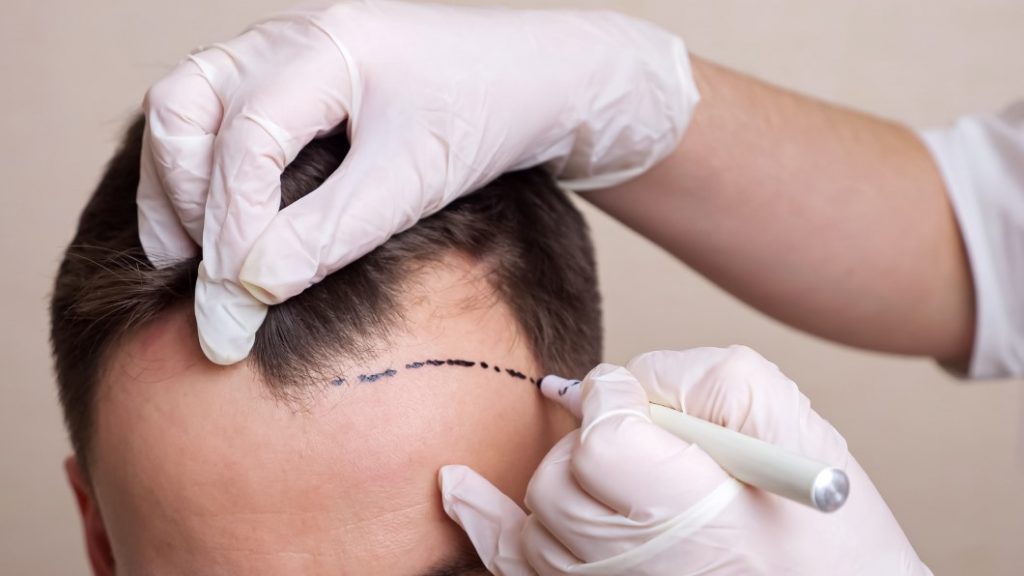Sun, sea and stitches: Why Britons (AND NOW AUSSIES) are flying to Turkey for cosmetic surgery!
Medical tourists are flooding into Antalya for cut-price procedures. This story was written by journalist Tim Moore and published by The Telegraph in the UK on 10 April, 2023 as a piece of investigative journalism about the boom in medical tourism, where approx.150,000 British are travelling to Antalya and Istabul to have ‘work done’ just last year. last year.
He explains the rationale behind this phenomenon- is pretty basic: cosmetic work in Turkey comes cheap. Really cheap!!!! And investigates does it add up to a holiday bargain, or health-endangering hell?
I’ve only come to the CatchLife Aesthetic clinic in Antalya for a chat about Turkey’s medical-tourism boom, but the managing director can’t help blurting out a frank appraisal of my facial shortcomings….
‘We can resolve these things for you so easily…’
In a city with an estimated 1,500 cosmetic-treatment agencies, all squarely pitched at foreigners, you become swiftly hardened to plain-speaking, stigma-free assessments of your physical appearance, and the options for its clinical improvement. As I checked in at my hotel two days earlier, the receptionist looked up with a smile and said: ‘So you are here for dentist?’
More than 1.2 million foreigners visited Turkey for medical procedures in 2022, the vast majority cosmetic. The proportion of Britons among them is growing faster than any other nationality, with an estimated 150,000 of us travelling there to have ‘work done’ last year.
Medical tourism now brings £2 billion into Turkey every year, a vital injection of foreign money into a struggling economy currently burdened with 55 per cent inflation. Each medical tourist spends more than three times as much here as a standard tourist,’ says Cagatay Tekguzel, manager and owner of the Formedi clinic, which last year treated almost 1,000 UK patients in Antalya. At his clinic, the numbers of Brits are up more than 20 per cent year-on-year.
Hair transplantation and cosmetic dentistry top the treatment list, followed by laser-eye correction, weight-loss surgery (typically the removal of half your stomach) and the classic surgical makeovers: nose jobs, boob jobs, facelifts, eye lifts. Istanbul is home to the most clinics, with Antalya number two and rising fast. It’s where Katie Price comes to get her teeth done, and redone, and done again.
The rationale behind this phenomenon is pretty basic: cosmetic work in Turkey comes cheap. Incredibly cheap, generally a third of what you’d pay at a UK clinic, sometimes even less. A new nose for £2,500, a new pair of breasts for £3,000, a new head of hair for £1,700.
A full set of ‘Turkey teeth’, those dazzling, perfect pearly whites that are suddenly everywhere, starts at £3,200. And these prices are inclusive, typically covering four or five nights B&B in a decent hotel and all transfers as well as, often, a cheeky extra like facial filler or blemish removal at no extra cost. By comparison, rhinoplasty (a nose job) in the UK starts at around £6,200, breast implants about £7,000, a full 4,500-follicle hair transplant can cost up to £9,000 and a new set of teeth at least £12,000.
‘We’re now at a point where anyone can afford this stuff if they save up for a year or two,’ says Paul Adams, a 60-year-old from Manchester who’s in Antalya with his partner Joanne Murray. She is getting her teeth transformed; he had his own done here last September while she was getting a facelift, and got his eyes laser corrected the previous year. The pair have spent a shade over £20,000 in all for the three medical trips. Tens of thousands of Brits who could never have dreamt of cosmetic surgery are now having it done in Turkey. Some of them, in thrall to shape-shifting, twinkle-toothed social-media influencers and these irresistible prices, hardly know when to stop.
For better or worse, thanks to Turkish clinics cosmetic surgery has been democratised, normalised, stripped of taboo. Almost every patient I meet is happy to discuss the experience under their real names, often with gleeful gusto.
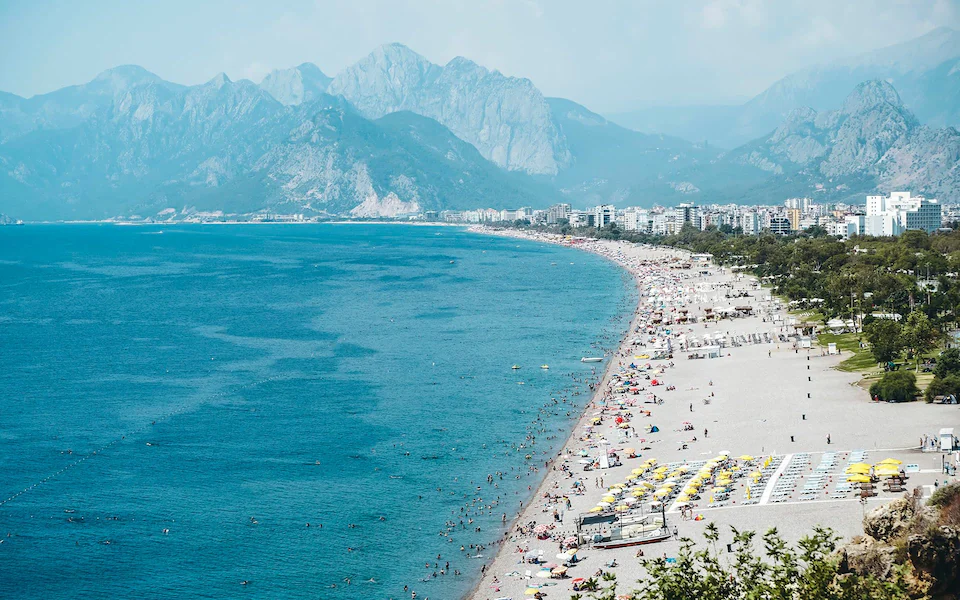
‘I mean, look at the state of me here!’ cries Murray, brandishing the clinic’s pre-facelift ‘before’ shot on her phone. It’s difficult to know how to respond, but by any assessment she now looks a good 15 years younger.
Mediterranean resort city of two million, Antalya has long depended on the tourist dollar. Hotel complexes and holiday apartment blocks stretch along the coast for more than 20 miles, bookending the minarets and steepling alleys of the old town.
Off season, when flights are at their cheapest and the milder weather is better suited to the gentle healing of post-op wounds, the streets are thronged with black-glazed luxury minibuses that speed patients to and from clinics, bearing clunky, sometimes unsettling names and slogans: Time Travel, CosmetoCity, Corpus Renew, Aesthetic Travel – We Love to Change You.
There’s this holiday atmosphere that means you just don’t get nervous before your procedure,’ says Murray. ‘You’ve been shopping for leather goods at the bazaar, sitting in the sun, eating lovely mezes – and then suddenly you’re on the operating table.’
Two middle-aged men stroll past, conversing amiably in London accents. Both have shaved heads that are stippled with innumerable red pinpricks: the legacy of recent hair transplants, in which up to 5,000 individual follicles are excised from the bits of your scalp that still have hair, then grafted into the bits that haven’t.
In the days ahead, I complete my cosmetic-treatment-aftermath bingo card on the streets of Antalya: noses neatly tented with splints and gauze, bandaged jowls, skin-closure butterfly strips poking beyond the perimeter of oversized sunglasses.
Tekguzel, a quietly engaging 31-year-old with a degree in English, meets me by the well-appointed Konyaalti seafront hotel where guests at his Formedi clinic are accommodated. His anatomical vocabulary betrays the clinic’s target nationality: he talks of ‘bums’, ‘tummies’ and ‘super-huge boobies’.
‘As a business, ours is unusual in medical terms,’ he says, thoughtfully. ‘No one really needs a new nose or a rounder bum. This is elective surgery requested by people who are not sick. When they arrive, they are healthy, and we call them clients. Then we operate, and they become patients.’
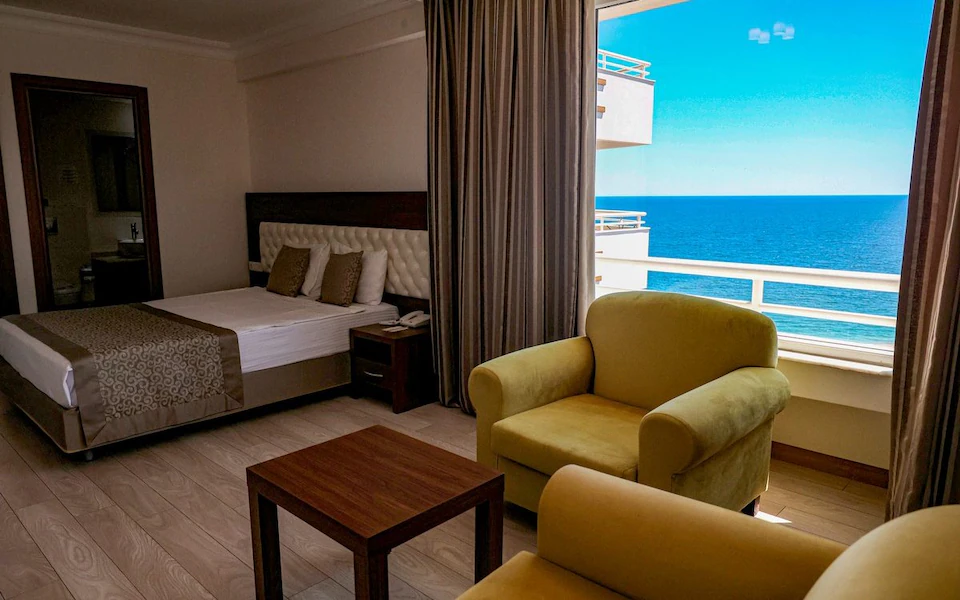
Just up the road, Tekguzel leads me through the Formedi’s glossy new expansion – a suite of five dental surgeries, furnished with expensive-looking equipment and executive leather. When it opens in a fortnight, he tells me, the clinic will be able to process 150 predominantly British ‘full-mouth’ patients a month, here for the signature Turkey-teeth set of 28 cubic zirconium crowns. It’s a £200,000 investment, he says. When I suggest that might take him a few years to recoup, he lets out a helpless giggle. ‘I think a few months!’
At the current Formedi clinic round the corner I’m introduced to a couple from West Yorkshire who’ve both just had the full-mouth treatment. Steven Rees, a Welsh-born tower crane operator, is 48 but has the smile of a much younger man.
I’m very, very happy,’ he says, flashing his new George Clooneys. ‘The procedure is pretty intense, 10 hours in the chair over two days, but they’ve been so gentle and professional.’
Intense indeed: the first stage involves filing all your teeth into slight points, allowing the crowns to fit over them. Whenever I look at those serrated, snowy mountains I’m reminded of a haunting photo posted by Katie Price midway through her most recent dental make-over, a crownless array of wide-set shark’s teeth.
Price, who has lost count of her boob jobs (she thinks it’s 12) and cheerfully admits to having injected so much Botox that it no longer works, might seem an improbable poster girl for Turkey’s aesthetic industry. Yet the Mono Clinic in Izmir, where she underwent full-body liposuction and a face and brow lift in 2021, devotes a whole proud page to her on its website.
‘Katie Price really knows no bounds when it comes to aesthetics,’ it gushes. ‘If you want to have an aesthetic body and face like Katie Price, you can contact us immediately.’
Dr Nilesh Parmar, a leading UK dental-implant surgeon, says that after so many veneers and crowns Price would now have ‘little or no tooth tissue remaining’, and it’s hard to imagine any reputable UK dentist taking her on as a patient.
But the Smile Team clinic in Antalya is more than happy to falteringly declare: ‘While the dentist had done Katie Price teeth she did her vacation in Turkey at the same time. So why wouldn’t you?’
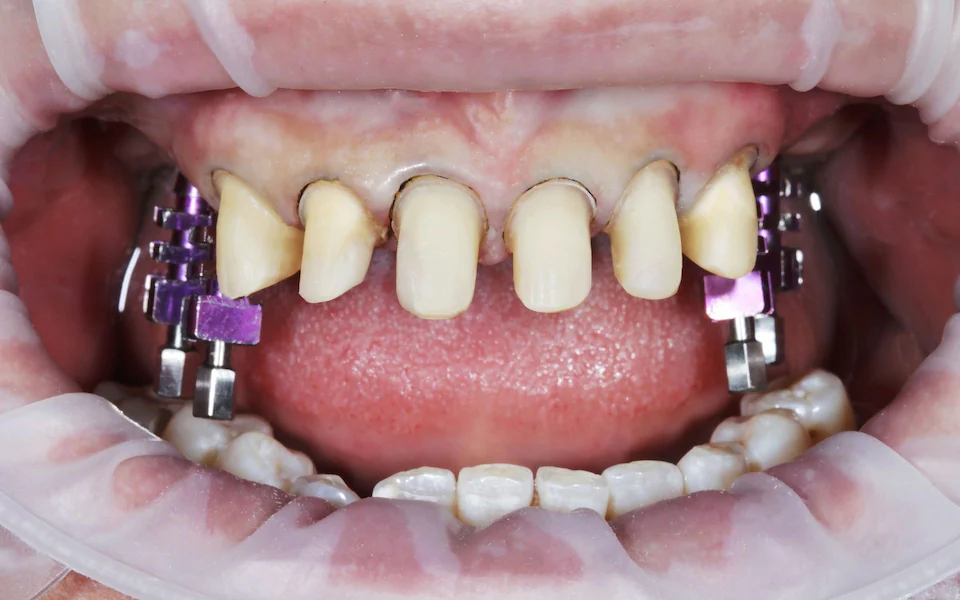
For certain UK clients, it’s not just that Turkey is cheap. They come here because some Turkish clinics will push the boundaries that little bit further than their more conservative – or responsible – UK counterparts. Bigger implants, riskier procedures, trend-driven looks that might be tricky to undo once facial fashions move on. Get yourself a Meghan Markle ski-slope nose, and be prepared to live with it once the pixie look falls from favour, as major rhinoplasty is cosmetically irreversible.
Antalya, I discover, attracts three types of British patient. Some are here for a one-off, midlife makeover: a facelift, new teeth, hair implants. Others are returning to correct the collateral consequences of a previous procedure – most typically those who have shed a huge amount of weight following stomach-reduction surgery and need loose skin removed.
And a few are on a never-ending journey of reinvention, one made possible by Turkey’s low prices and its rather more libertarian approach to customer choice.
‘Germans, French, Swiss people want minimal procedures,’ says Dr Onur Ogan, the surgeon who performed Joanne Murray’s facelift. ‘They don’t want people to know they have had plastic surgery. It is the UK patients who ask for exaggerated results, the Love Island and Kardashian stuff, big lips, big boobs, big bums. They are happy to tell people they have had surgery, happy to show it on social media.’
For some of us, less is never more. This is conspicuous consumption distilled to its very essence.
At the MediFace clinic near Lara Beach I meet Amanda Lindsay, a 48-year-old north Londoner who’s been in for a slanted eye-lift that will – once the bandages are off – endow that on-trend, almond-shaped cat-eye look (yes, Katie Price has had it done).
Lindsay is an old hand: five years ago she underwent a full ‘mummy makeover’ (breast lift, buttock lift, tummy tuck) in the Dominican Republic. ‘If you’re not paying UK prices, plastic surgery is like going down the corner shop. I’m getting my teeth done next.’ I can see how it happens. You redecorate one room in your house, and suddenly the rest of it looks a bit shabby.
In fact, there’s a fourth type of UK patient.
Another British MediFace client, who requests anonymity, has come to Antalya for revision work – broadening her nasal airways after a botched Harley Street nose job left her struggling to breathe. ‘That cost me £5,000 and it’s been a nightmare. The consultation process here is so much more in-depth and open.’
A recently retired nurse, also endured expensive disappointments at private clinics in the UK. ‘We’ve both spent thousands having our teeth sorted back at home, and it never seemed to work out,’ says Rees. ‘I came here with a dead tooth and a composite that was falling out.’
The requisite remedial work almost doubled the cost of their Turkey teeth to £5,000 each – Joanna needed four implants and a bone graft into her jaw. But those implants alone, she says, would have cost more in the UK than ‘getting my whole mouth done here’.
Rees and Ludbrook have rationalised the expense as a blow-out holiday: ‘I mean we’re having a nice winter break in the sun here anyway, but £10,000 is what we might have dropped on a once-in-a-lifetime trip to Cancún.
Dr Ebru Yuceer, who spent those 10 hours reinventing Rees’s smile, emits quiet sincerity and an evident passion for her work. ‘I have small, careful hands, good at piano and painting when I was at school. Detail is my obsession: I wanted a career in precision.’
She has been working on foreign mouths in Konyaalti for 12 years, and still gets a kick from the expressions of delighted disbelief that typically accompany the first post-treatment looks in her mirror. ‘I get well paid, sure, but happy patients are the best salary.’
As the petite 35-year-old earnestly holds forth, flanked by two beaming examples of this professional perk, I realise that bargain prices and a holiday environment aren’t quite the whole story. The Turkish medical-tourism boom is also founded on the close personal relationships that good clinics foster with their patients, and more fundamentally on the dependable quality of their work.
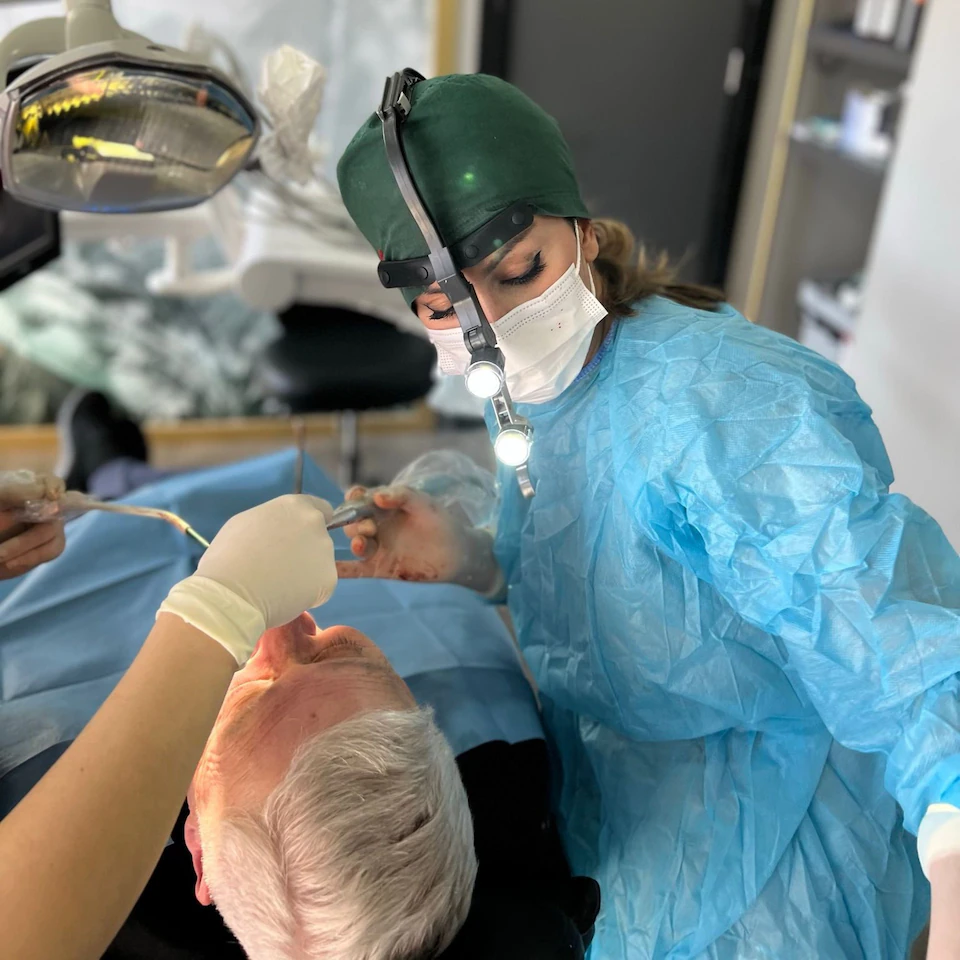
Turkey can draw on a long heritage of cosmetic surgery: one pioneering 15th-century medical textbook shows that Ottoman doctors were conducting eye lifts and even moob-reduction procedures 600 years ago.
Since the medical-tourism boom got going 20 years back, Antalya’s cosmetic dentists and surgeons have built on this tradition, and in great numbers. They’re craftsmen who have become extremely good at what they do, honing their very particular skills through years of specialised repetition on thousands of patients.
Practice has made perfect. It’s a conclusion reinforced when I meet a bariatric surgeon who makes 25 British stomachs smaller every month, and a rhinoplasty supremo who reshapes twice as many noses over the same period. There are hair doctors in this city with more than 4,000 transplants to their name, surely a profound reassurance to any patient waiting to have the same number of tiny holes cut in his head.
Their cosmetic counterparts in the UK, with nothing like this throughput of patients, can rarely accrue such a depth of experience.
Paul Adams had both his eyes laser-corrected at an Istanbul clinic in under an hour. ‘It was like pulling a pint for him [the surgeon] because he’s done it so many times.’ A year since he binned his bifocals, Adams is still merrily amazed. ‘It was under £2,500 for both eyes, and that included a five-star hotel. At home I’d been quoted £3,000 per eye.’
Cagatay Tekguzel maintains that his industry is rooted in the Turkish people’s inherent urge to care for those in need – though this seems better evidenced by the glossy, well-fed stray cats of Antalya than bald foreigners with tiny new scars all over their heads.
Yet there’s no doubt that patient/clinic communications are nurtured to a degree unimaginable in Britain, before and long after surgery. All the doctors I meet scroll happily through WhatsApp messages they’ve been responding to around the clock, fielding queries from prospective future clients, addressing concerns about wound care from those recently treated, exchanging jolly banter with patients they haven’t seen in the flesh for years.
Every clinic employs a roster of multilingual ‘patient co-ordinators’, who talk clients through their procedures and detail the aftercare, offering a supportive word here, holding a hand there. (Sometimes their English lets them down: one coordinator tells me of the time he misremembered the word ‘sedation’, and informed a wide-eyed female patient that the doctor would be treating her ‘under seduction’.)
The personal touch is evident from the very start. ‘At the airport there was a driver with my name on a card,’ says Borce Drapic, a Macedonian-born German who’s just had a hair transplant at the MediFace clinic. ‘He came over and gave me a big hug!’
CatchLife patient coordinator Tunahan Özelçi tells me that when clients fly home, tears are commonplace. ‘They cry, we cry – we’ve built such a strong relationship.’
In truth, this overflow of TLC is run through with a stream of hard commercialism.
As the patients I speak to confirm, these clinics now source their clientele almost entirely via social media: reviews, video clips and the ubiquitous before-and-after shots that previous customers post on Facebook, Instagram and TikTok gather traction, abetted by the clinic’s own carefully curated accounts (CatchLife employs a three-man ‘digital team’). It’s a business where word of mouth has given way to photo of face.
In the scramble for positive online feedback, clinics can’t afford to have patients grumbling about poor stitching or infected wounds, let alone grumpy doctors and uninterested staff. Formedi, CatchLife and MediFace all offer ‘free revision’ guarantees: a pledge to put things right if they go wrong after your return, with the patient only liable for the cost of a return flight to Antalya.
‘It can take a year to fully recover from surgery,’ says Tekguzel, ‘and because our patients live abroad they need extra reassurance in case stitches tear or implants sink down or things like that.’
These concerns may also help explain why most of the clinics I visit are now edging further towards low-risk, high-gain procedures: hair transplants and Turkey teeth make great before-and-after material, and rarely engender the sort of complications that can badly compromise your online PR.
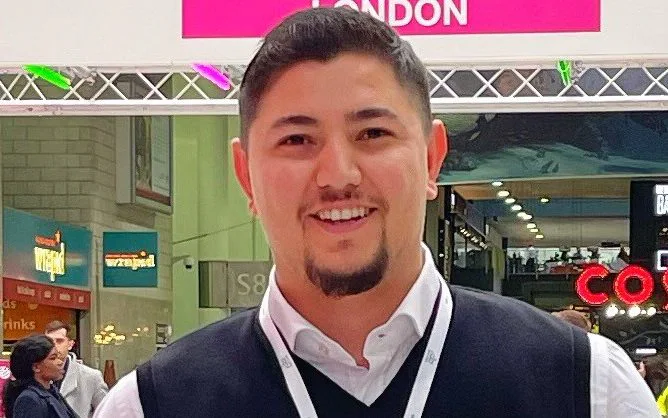
Cagatay Tekguzel: ‘When they arrive, they are healthy, and we call them clients. Then we operate, and they become patients.’
Surgery is always a roll of the dice. Studies show that post-operative sepsis affects just over one per cent of patients, with a mortality rate approaching 30 per cent. Any procedure involving liposuction – the removal (and typically relocation) of subcutaneous fat – comes freighted with the additional danger of fat droplets entering the bloodstream, thereby risking lethal clots.
Every clinician I talk to winces slightly at the very mention of BBLs – Brazilian butt lifts, the Kardashian-inspired treatment du jour that creates beach-ball buttocks through the heavy use of ‘lipo’. (The CatchLife team tell me the procedure is increasingly requested by male clients: ‘They read surveys that tell them women always look at men’s bums before their faces.’)
The doctors seem reluctant to detail their evident reservations, and the statistics tell me why: an extensive study concluded that one in 3,000 BBL procedures have a fatal outcome. The odds might be low, but with 150,000 UK medical tourists a year, they still equate to a grim toll of tragedies.
Three British women have died as a result of complications arising from BBLs undertaken in Turkey; Abimbola Bamgbose, a 38-year-old social worker from Dartford, succumbed to peritonitis in August 2020 after undergoing liposuction and BBL surgery at Mono Cosmetic in Izmir – a clinic that has reconfigured Katie Price. Since 2019, according to the Foreign Office, a total of 22 Britons have lost their lives following medical-tourism visits to the country.
After a rash of UK tabloid horror stories, in 2018 the Turkish health ministry imposed regulations requiring clinics that treat international patients to go through a licensing procedure which, I am repeatedly assured, is both stringent and very expensive.
The cowboy clinics are long gone, I’m told, and standards are now up with any in Western Europe. Every single clinic and hospital I visit in Antalya – both public and private – is spotless and arrestingly well equipped. Most exude the air of an upmarket chain hotel; one even offers valet parking. Doctor after doctor insists that mortality rates for cosmetic procedures are no higher in Turkey than elsewhere.
But despite these reassurances, the undoubted skill of the surgeons and dentists and the tireless empathy of their patient coordinators, there’s no escaping the fact that coming out here for cosmetic work is still a pretty ballsy undertaking. You’re 2,000 miles from home and someone you’ve only previously met on WhatsApp is going to file down every tooth in your head, or snip off half your stomach. They might be brilliantly dextrous, but they might also be exhausted, running on fumes in their fourth op of the day.
And though Antalya never feels in any way unsafe, there’s a vague but pervasive banana-republic vibe that makes a slightly jarring fit with complex medical procedures. Stray dogs, heady smells, nervous conscripts with big machine guns. Dusty old men hauling handcarts full of rubbish down potholed alleys. Almost everyone smokes, though at least the doctors go outside to do it. Nobody seems to accept credit cards, and Turkey’s rampant inflation stuffs your pockets with wads of grubby notes, some worth less than 20p.
Most clinics demand full upfront payment in cash – euros or sterling only.
‘I mean, who deals in cash these days?’ says Steven Rees. ‘When you hand it over, a part of you can’t help thinking it’s a scam, that you’ll come back for the treatment and the clinic’s vanished.’ Paul Adams had to fly out with £12,000 in cash, for his teeth and his partner’s facelift.
‘I was terrified, I thought I might get mugged on the plane! Half the passengers were out here for treatments – there must have been £200,000 on that flight.’
I suppose you just have to keep reminding yourself that there are several reasons why this work is so cheap, and a few of them are a bit murky.
‘In a funny way, I think that’s one of the reasons people can seem a bit jealous,’ says Joanne Murray. ‘It’s not just that we look so much younger, it’s that we’ve had the gumption, the bravery, to come out here and do this.’
Back at Antalya airport I wander through ranks of the walking wounded, scarred scalps, splinted noses, bandaged necks.
There are lots of headscarves, caps and enormous sunglasses. A woman in a white-and- gold tracksuit sits down very gingerly, grimacing as flesh hits hard plastic. Over at the duty-free queue, a middle-aged man extracts £20 notes from a big roll to pay for two cartons of cigarettes. He cracks a smile at the cashier, and I deduce it’s the remaining cash balance from his new Turkey teeth.
https://niptuckholidays.com/group-tour/
